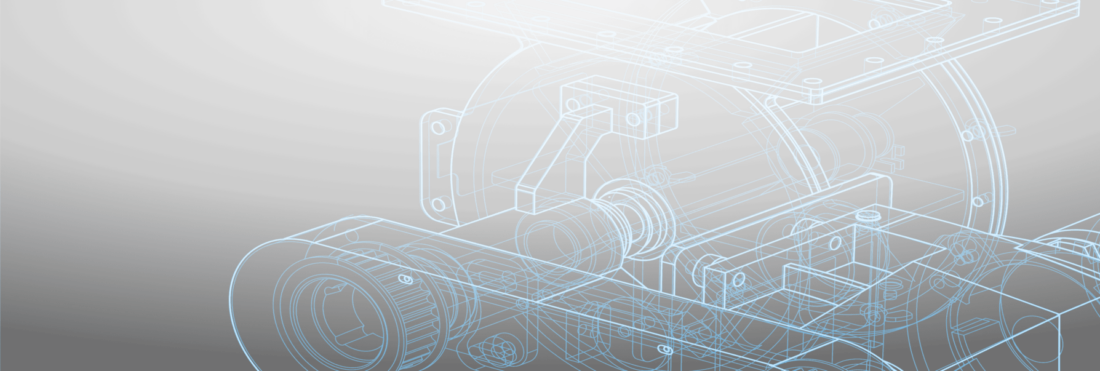
An ERP is an essential tool for custom manufacturers. Not having one may be holding you back from meeting your goals and improving your business, as you are wasting too much time on redundant processes—and are failing to meet customer expectations.
An ERP solution can help your company become a more productive, leaner, and more efficient operation—making you a better business all around.
Why is an ERP System a Great Fit for Manufacturers?
ERPs can benefit custom manufacturers in a variety of ways, but some of the top benefits custom manufacturers see are:
Increased efficiency
Doing things faster, better and with more consistency is the ultimate endgame for custom manufacturers. ERPs help you increase your shop’s efficiency because they help you do everything better. For example, you’ll manage your inventory with greater accuracy and schedule your shop with greater precision. And by improving all of your tasks and business processes you will become a more efficient and productive operation.
Better collaboration
ERPs let your entire operation work off of the same centralized shared database. This opens the door to collaboration as it makes it easy for your staff to share information and data quickly and easily with each other. ERPs let you break down information silos and create a more open, transparent, and collaborative workplace.
Increased data security
You know what can happen when someone accidentally deletes important data from a spreadsheet. ERPs ensure that you always have accurate, trusted and safe data, by creating one central data repository that has closely monitored access points and user permissions—meaning people can’t accidentally access and change data.
More accurate forecasts
Accurate forecasting is essential to custom manufacturers, as they let you plan and manage your business better. Armed with the data that an ERP provides you from its reporting functionalities, you will be better informed, and be able to make better decisions and create better forecasts for your business.
Reduced operational costs
You will reduce both operational and administrative costs with an ERP because you will run your entire operation from one centralized system, meaning you won’t have to pay for multiple systems and the associated maintenance costs. Also, because ERPs let you manage your shop better as a whole, you will avoid delays that can cost you dearly, for example, by being better able to manage long lead items or other processes that can set you back.
What features do custom manufacturers need?
While it’s important to note that every business, and every custom manufacturer is unique and will need to find the right ERP that fits their operation and processes, it’s safe to say that there are certain features that all custom manufacturers can benefit from. Below are the top five features that we think a custom manufacturer needs in an ERP:
Robust inventory management
Inventory management, including the managing of long-lead items, is a major issue for custom manufacturers. To have a job flow through a shop effectively requires having the right materials on hand at the right time. Keeping track of inventory, and knowing when you need to order critical parts or raw materials is something that custom manufacturers need to be able to do very effectively.
An ERP integrates your inventory management with the rest of your operation, making tracking inventory throughout your organization easy. With an ERP you will have an inventory management system that is in sync with the rest of your operation, making it easier for you to manage things like long lead-items, as you can know about these items during the design-phase of a project, and have more time to order the item and ensure you have it on hand when you need it.
With an ERP system you can automatically keep track of the inventory you use on each job, which for example, will let you do proper production planning as you will know exactly the amount of raw materials you have on-hand, and what you need to order to complete a job.
Knowing real-time stock levels also make it easier to replenish inventory—an ERP can either automatically reorder materials for you, or send your purchasing manager a timely reminder letting her know that items need to be reordered. Without an ERP telling you that it’s time to replenish inventory, manufacturers can face enormous costs to expedite freight when they are desperately in need of stock.
Scheduling
Scheduling is another area that can be a major challenge for custom manufacturers. Balancing machine and labor schedules so that everything is running at its highest level of efficiency in your shop is a difficult task for custom manufacturers that requires a lot of insight into your operations and the jobs you have on the go. Without an integrated system that connects and gives you data from across your organization the task is nearly impossible.
One of the greatest aspects of ERPs is their ability to provide comprehensive visibility. An ERP gives you an overarching view of your operations, letting you know how every aspect of your operation is performing, including your shop floor. An ERP can give you production statistics, like staff productivity and machining time.
And with an ERP what used to take hours of meticulous data collection, and report creation, can be done automatically giving you a comprehensive overview of your operation. You can use this information to optimize production schedules, for both equipment and labor—to maximize capacity and increase your throughput.
With an ERP you can align your whole company and manage the priorities that drive your organization. You will be able to schedule work centers, personnel, required parts and tools based on your BOM, as well as actual workload and capacity. You will also be able to monitor and improve work center performance and availability using integrated real-time data.
CAD-ERP integration
Do you know that up to 20% of the total engineering time in your shop is taken up by transferring Bills of Materials (BOMs) out of your CAD system? This is an especially time-consuming task for ETO shops where every item you manufacture is truly custom.
But you can get this time back, and have your engineering department working on more important tasks than data entry, by having your ERP system integrate directly with your CAD software.
With a fully integrated system, your engineer will be able to seamlessly export the BOM from your CAD system into your ERP, creating a fully itemized list of the materials, and letting you easily compare the materials needed for the project against what you already have on hand. Not only will you remove errors that come from manual data transcription and entry, you’ll save time, and you will always be confident about what materials you need to get a job done on time and on budget.
A good custom manufacturing ERP system will be fully automated and let you transfer data between a CAD system and your ERP with a push of a button, eliminating all redundant data entry, as well as be able to automatically reconcile, and find and correct any errors. If an edit is made to the data in the CAD system, you need this to update in the ERP system automatically. A system that automatically resolves any discrepancies, but also lets the end-user have the final say, is the gold standard of CAD-ERP integration.
Customer relationship management
Let’s face it, your customers are everything. Without happy and satisfied customers your shop can’t exist. You need to keep your customers happy, and keep them coming back to you, to stay in business. A poor customer experience, and poor customer service, can be major roadblocks to your business success.
A good custom manufacturing ERP system will include a CRM or Customer Relationship Management function, that lets you keep all of your records and interactions with a customer in one place. You’ll be more organized and able to know the status of each job you have for a customer. You’ll also be able to handle customer questions and inquiries, faster and easier, and provide your customers with quicker and better answers, enhancing your customer service and your relationships with your customers.
The CRM module will help you to boost customer service and, eventually, profit per customer. You will be able to coordinate your sales team with simplified pipeline management, as well as coordinate communications, and track leads and opportunities from desktop or mobile. Likewise, a CRM provides a 360-degree profile of your customers by consolidating data like their social media activities, purchase history and past interactions with support reps, all to help you deliver outstanding customer service.
Executive information system
Gaining better insights into your company is crucial in remaining competitive in today’s fast moving business climate. An ERP consolidates data from across your organization, in real-time, letting you generate detailed and up-to-date reports. Most ERPs come with tons of detailed reports and template built into them, allowing you to create accurate reports quickly and easily.
You can analyze and compare metrics across your entire company without needing to rely on multiple spreadsheets and email chains to find the information. Better reporting, including financial reporting, lets you know where you are at, and allows you to plan and forecast with greater accuracy.
Ultimately as the CEO, you have to make the tough calls about your business. This isn’t an easy job and the decisions you make can have a major impact on your business and the people who work for you. ERPs give you a better understanding of your entire organization, and with more data and a greater insight into your operations you can make faster and better decisions in response to challenges, opportunities and market trends.
You can also be more confident in the decisions you make as you know they are backed by real data. The tough decisions will never be easy, but an ERP can assist you in making the right call for your company.
Manufacturer case studies
If you want to learn more about how a manufacturing-specific ERP can help real customers improve their businesses, check out our case studies here. You can learn how Genius ERP helps REELEX Packaging Solutions avoid material and long-lead item shortages with our scheduling and inventory management features. Or how our CAD-ERP integration feature helps Hinds-Bock Corporation move seamlessly from design to production. See what the right ERP can do for you.
Get your eBook Scared to implement a new ERP?
"*" indicates required fields



